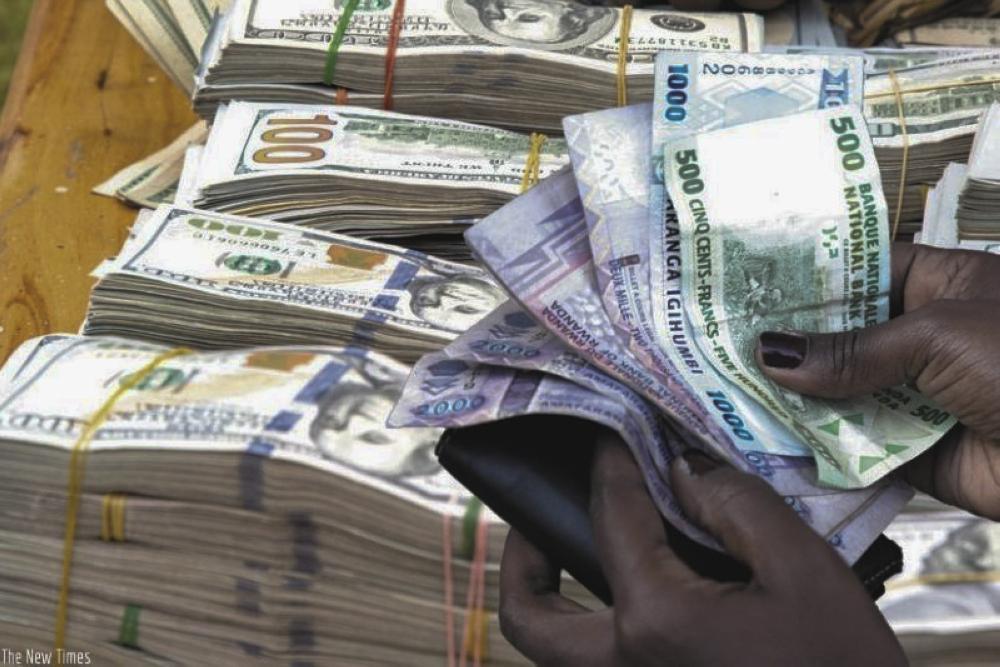Africa-Press – Rwanda. The National Bank of Rwanda has shed light on recent changes in the regulation governing foreign exchange operations in the country.
The changes are provided for under a 2025 regulation amending that of 2022 governing foreign exchange operations in Rwanda. The new rule was published in the Official Gazette on May 30.
Godfrey Mugabe, Manager, Financial Sector Legal and Regulations at the National Bank of Rwanda, told The New Times that the amendment introduces new provisions on permitted payments for imports or exports, and specific pecuniary sanctions.
“These changes were informed by persistent non-compliance and the need for clearer enforcement tools,” he said.
Payment in foreign currency permitted for exports and imports
In the 2022 regulation, article 20 provided that all payments to non-residents and all transfers of funds by residents to or from abroad must be made through the authorised intermediaries or the central bank.
The new regulation introduces a provision permitting payment in foreign currency for exported or imported goods or services.
“The rationale is to facilitate legitimate cross-border trade transactions,” Mugabe said.
Higher monetary sanction for repeat offenders, and differently penalising foreign currency pricing and transactions
The 2022 regulation provided that any person who sells or prices goods or services in foreign currency in its violation was punishable by the seizure and confiscation of the amount involved in that transaction, and the confiscated amount would be credited on a public treasury account.
While the sanction was the same for unauthorised pricing and transacting in foreign currency in that regulation, the amendment sets different sanctions.
As per the amended regulation, any person who prices or transacts in foreign currency without the central bank’s permission commits an administrative fault, and the central bank imposes on them a corresponding pecuniary (monetary) sanction.
For pricing in foreign currency, the penalty is Rwf5 million for the first instance – when they commit the fault for the first time; and Rwf10 million for the second instance and above.
Regarding transacting in foreign currency, the penalty is 50 per cent of the transacted amount for the first instance; and 100 per cent of the transacted amount for the second instance and above.
“The changes aim to ensure deterrence by introducing more proportionate and impactful penalties that reflect the nature and scale of the violation,” Mugabe said.
“Pricing in foreign currency is a preliminary act, while actual transactions in foreign currency have a larger economic impact. Hence, the new regulation imposes heavier penalties on transactions to reflect their higher risk and harm,” he observed.
Why a higher penalty for foreign currency auction?
As per the new regulation, any person who calls to auction or who is involved in a foreign currency auctioning commits an administrative fault, and the Central Bank imposes on him or her a pecuniary sanction equivalent to 50 per cent of the total auctioned amount.
In the previous regulation, a licensed intermediary or any person involved in a foreign exchange auctioning was liable to a pecuniary sanction equivalent to 1 per cent of the total auctioned amount.
“The major changes were driven by the need to close regulatory gaps, enhance enforcement effectiveness, and address market behaviors that undermined the use of the Rwandan franc in domestic transactions,” Mugabe said.
Responding to observed issues
During an X space held by the central bank on June 17, Mugabe said that the amendment was, among others, informed by the findings of inspection that was carried out on foreign exchange operations in Kigali, Rubavu, Rusizi, and other prime areas of the country.
“The usage of foreign currencies in in local markets in our daily life kind of contradicted that mandate [to make sure that the Rwandan franc is integral, solid and trustworthy]. It put a lot of pressure onto our domestic currency,” said citing “hiking of prices on the market, instability in the in the purchase of certain commodities like rentals.”
Meanwhile, the central bank clarified that transactions conducted by hotels, casinos, travel and tourism agencies, duty-free shops, and international schools when dealing with non-residents can be done in foreign currencies – because of the nature of the entities’ business – based on the directive of 2023.
During the X space, Theogene Muhoza, Manager, Foreign Exchange Supervision at the National Bank of Rwanda said that the rationale of the new regulation was to enforce the previous directives on FX transactions basically by sanctioning malpractices on FX market.
“So, I would say that this new regulation that we are talking about is meant to clarify rules on foreign exchange operations including permitted and prohibited activities but also penalties for violation,” he said.
For More News And Analysis About Rwanda Follow Africa-Press






